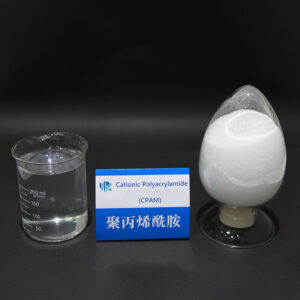Description
What is Polyferric Sulfate?
Polyferric Sulfate is produced by the controlled polymerization of ferric sulfate, typically using ferrous sulfate and oxidizing agents under acidic conditions. The result is a yellow to reddish-brown liquid or powder that contains complex iron (Fe³⁺) species, which work effectively as a coagulant across a wide range of pH levels.
The unique structure of PFS allows it to neutralize negatively charged colloidal particles, promote flocculation, and enhance the sedimentation process.
Technical Specifications of Polyferric Sulfate
| Parameter | Typical Value |
|---|---|
| Appearance | Yellow to reddish-brown liquid or powder |
| Fe³⁺ Content | ≥ 19.0% (liquid) / ≥ 21.0% (solid) |
| Basicity (%) | 8 – 16% |
| Density (liquid) | 1.45 – 1.50 g/cm³ |
| pH (1% solution) | 2.0 – 3.0 |
| Water Insoluble Substances | ≤ 0.5% |
| Shelf Life | 6–12 months (sealed, cool storage) |
Note: Values may vary slightly depending on manufacturer specifications and product grade.
Applications of Polyferric Sulfate
1. Drinking Water Treatment
PFS is commonly used in municipal water treatment plants to clarify raw water. It efficiently removes turbidity, algae, color, and microorganisms while producing less residual aluminum or iron than traditional coagulants.
2. Municipal and Industrial Wastewater Treatment
Industries such as textile, printing, papermaking, mining, and food processing utilize PFS to remove contaminants like suspended solids, phosphorus, heavy metals, and organic pollutants from wastewater streams.
3. Sludge Dewatering
PFS helps improve sludge thickening and dewatering performance, resulting in lower moisture content and reduced sludge disposal costs.
4. Desulfurization and Industrial Gas Cleaning
It’s also applied in wet flue gas desulfurization systems for sulfur dioxide (SO₂) removal, particularly in power plants and industrial boilers.
Advantages of Using Polyferric Sulfate
✅ Strong flocculation and rapid settling performance
✅ Low dosage with high treatment efficiency
✅ Works effectively across a wide pH range (4–11)
✅ Reduced sludge volume and easier dewatering
✅ Low corrosiveness compared to other iron-based coagulants
✅ Environmentally friendly and biodegradable byproducts
These benefits make PFS an ideal coagulant for users looking to optimize performance while minimizing environmental impact and operational costs.
Safety and Storage Guidelines
Polyferric Sulfate is non-toxic and safe for water treatment when used as directed. It should be stored in sealed containers away from direct sunlight and moisture. Avoid direct skin or eye contact, and follow all guidelines on the Material Safety Data Sheet (MSDS).
Final Thoughts
Polyferric Sulfate (PFS) is a highly effective and environmentally responsible coagulant that has proven its value in both drinking water purification and industrial wastewater management. With its strong flocculating power, fast settling, and low residual content, PFS is a smart and sustainable choice for water treatment professionals worldwide.
Whether you’re managing a large-scale municipal plant or a specialized industrial process, PFS offers a cost-efficient, high-performance solution for improving water quality and meeting environmental standards.






![ferric aluminum sulfate GRANULAR 16% [furrous]](https://mjrdchemhome.com/wp-content/uploads/2025/04/camachem_-_ferric_aluminium_granular_1_-300x300.jpg)